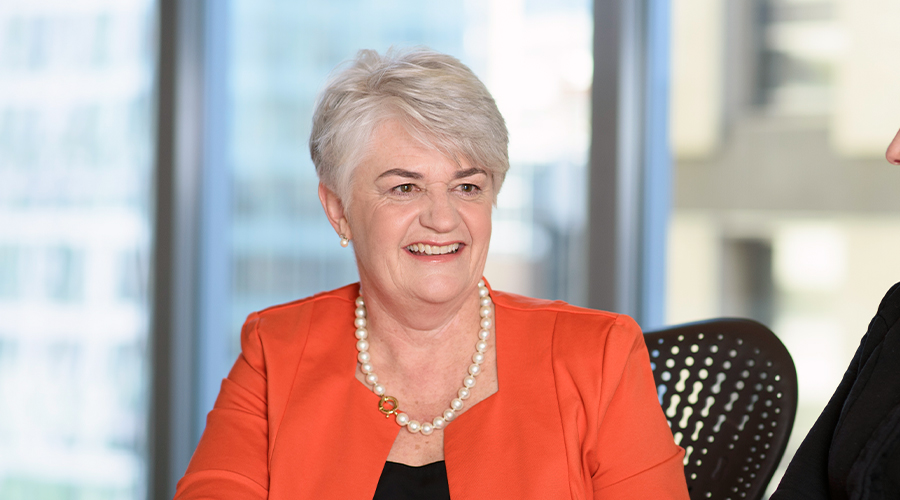Talking Tax – Issue 160
PCG 2019/4 and the practical implications for retirement village operators
The Australian Taxation Office released Practical Compliance Guideline (PCG) 2019/4 on 12 June 2019 which explains the Commissioner of Taxation’s compliance approach to how certain liabilities (i.e. ‘lease surrender liabilities’ and/or ‘increase entry price’ liabilities) are to be treated when a retirement village operator leaves an income tax consolidated group, and where the value of such liabilities has increased between the operator joining and leaving the group. PCG 2019/4 relates only to the treatment of the increase in the liability, which is taken through the entity’s profit and loss account – at which point no deduction is available
To date, there has been confusion in the industry as to whether the ‘value increase’ portion for such liabilities can be excluded from Step 4 of the exit allocable cost amount (ACA) calculation, when a retirement village operator leaves an income tax consolidated group. PCG 2019/4 clarifies the Commissioner’s view, that the increase in the value of such liabilities can be excluded on the basis that the leaving entity will be able to claim a deduction for payments made to discharge such liabilities as they fall due after the leaving entity has left the tax group.
In accordance with TR 2002/14, payments made to discharge a ‘lease surrender’ liability or an ‘increase entry price’ liability are deductible in the year in which the operator becomes liable to make the payment to the resident on termination of the lease.
When a subsidiary member that is a retirement village operator leaves an income tax consolidated group (leaving entity), the head company of the group must determine the capital gain or loss incurred with respect to the leaving entity by calculating the exit ACA in accordance with section 711-20 of the Income Tax Assessment Act 1997 (Cth) (Act).
The deductible nature of a payment made to discharge a ‘lease surrender’ liability or an ‘increase entry price’ liability has previously caused confusion at Step 4 of determining the ACA as section 711-45 of the Act required that all liabilities of the leaving entity be included in the calculation.
However, pursuant to the new PCG 2019/4, the Commissioner now accepts that the increase in the value of the ‘lease surrender’ liability or ‘increase entry price’ liability are amounts that are taken into account for income tax purposes at a later time than under accounting principles for the purposes of applying section 711-45 of the Act.
That is, section 711-45(5) of the Act will apply and deny the head entity from being able to claim a deduction in respect of a lease surrender liability or increase entry price liability that has been incurred by a leaving entity.
Instead, the leaving entity will be able to claim a deduction for payments made to discharge a lease surrender liability or increase entry price liability as they fall due after the leaving entity has left the consolidated tax group.
2019-20 New South Wales Budget measures
The New South Wales (NSW) State Budget was handed down on Tuesday 18 June 2019 by the Honourable Dominic Perrottet MP. NSW taxpayers will be pleased to hear that ‘not a single new tax has been introduced’ as a part of the 2019-20 Budget and the NSW Government has provided a number of tax concessions that are summarised below.
The State Revenue and Other Legislation Amendment Bill 2019, which is currently before Parliament, contains the proposed tax changes.
Indexing of transfer duty thresholds
From 1 July 2019, the transfer duty threshold will be indexed to the Sydney Consumer Price Index. This will cause the transfer duty thresholds to increase gradually over time so that those purchasing property in NSW will not continue to fall victim to bracket creep. This is the first change to the general NSW transfer duty brackets since 1986 (with the exception of the introduction of a new ‘premium rate’ for high value residential properties). Similar indexation of duty thresholds would be a welcome change for some other jurisdictions to also adopt.
Foreign Investor Surcharge exemption
From 1 July 2019, certain ‘retirement visa holders’ (visa subclasses 405 and 410) will be exempt from the foreign investor surcharges (both the transfer duty surcharge and the land tax surcharge) for their principal places of residence. This amendment better aligns the surcharge tax treatment of visa holders in NSW with the treatment of visa holders in other states.
Payroll tax
In keeping with its announcement in the 2018-19 Budget, the NSW Government will increase the payroll tax threshold from $850,000 in 2018-19 to $900,000 in 2019-20. The threshold will continue to increase year on year until 2021-22, when the threshold will peak at $1 million.
The increase in the 2019-20 payroll tax threshold is expected to save NSW businesses $187 million in payroll tax.
Additionally, from 1 July 2019:
- businesses with payroll tax liabilities up to $20,000 who currently submit monthly payroll tax returns will now only need to submit one annual payroll tax return;
- pre-set monthly payments will be available for businesses with liabilities between $20,000 and $150,000 per annum, freeing them from the need to prepare detailed calculations every month; and
all businesses will have an extra week to submit their annual reconciliation.
2019-20 Queensland Budget measures
The Revenue and Other Legislatives Amendment Act 2019 (Qld) that enacts the Queensland Budget announcements has received Royal Assent and results in a raft of changes for Queensland taxpayers. The key tax measures are summarised below.
In addition to the legislative changes, further compliance funding will be provided to the Queensland Office of State Revenue to undertake additional targeted tax compliance activities. Payroll tax, land tax, transfer duty and royalties will be the focus areas for these compliance activities.
Land tax absentee surcharge
The Queensland Government will increase the land tax absentee owner surcharge (applicable for certain absentee individuals) from 1.5% to 2.0%. This rate is in line with Victoria (from 1 January 2020) and NSW. Importantly, the Queensland Government plans to exclude Australian citizens and permanent residents from being treated as ‘absentees’, despite being out of the country at the relevant assessment date.. A 2% surcharge will also be imposed on foreign companies and trustees of foreign trusts. This surcharge (in line with the individual absentee owner surcharge) will be payable on the taxable portion of the taxable value of $350,000 or more. Ex gratia relief from this surcharge may be available in exceptional circumstances, considered on a case-by-case basis.
Increased land tax for companies and trusts
The Queensland Government will also increase the land tax rate for companies and trusts by 0.25% for landholdings with a taxable value above $5 million.
Payroll tax
The Queensland Government is attempting to drive jobs growth by raising the payroll tax-free threshold from $1.1 million to $1.3 million from 1 July 2019 in a move that is expected to exclude approximately 1500 Queensland businesses from having to pay payroll tax.
The payroll tax rate:
- for large employers or groups (with taxable wages above $6.5 million) will pay payroll tax at 4.95% (increased from 4.75%)
- while businesses with up to (and including) $6.5 million of taxable wages will remain at the lower 4.75% rate.
A 1% discount will be provided for regional employers, such that:
- large businesses in regional Queensland ($6.5 million and over) pay payroll tax at 3.95%; and
- businesses with up to (and including) $6.5 million of taxable wages will pay 3.75%.
Businesses that are growing and employ new full time employees for more than a year (based on a net increase in full time employees) will also be eligible for a 100% rebate up to $20,000 on the payroll tax paid in respect of those new employees.
Petroleum Royalties
The petroleum royalty rate will increase from 10% to 12% from FY20, with transitional arrangements available for certain taxpayers.
Other Queensland Duties Act amendments
Other amendments (that are not Budget measures) have also been made to the Duties Act 2001 (Qld) to clarify:
- when references to consideration include both monetary and non-monetary consideration; and
that land-holdings of a partnership are deemed to be land-holdings of the respective partners for landholder duty purposes. This amendment is in response to a recent duty decision in Victoria regarding partnership interests (Danvest Pty Ltd & anor v Commissioner of State Revenue [2017] VSCA 382).
Victorian economic entitlement provisions
As the new Victorian economic entitlement provisions have come into force (the State Taxation Acts Amendment Act 2019 (Vic) received Royal Assent on Tuesday), the SRO has released guidance outlining the Commissioner’s view regarding the operation of these provisions: https://www.sro.vic.gov.au/economic-entitlements This guidance does not adequate certainty for taxpayers negotiating their arrangements as it does not have legislative force and only addresses ‘plain vanilla’ circumstances. Importantly, the Commissioner’s views expressed in this guidance that provide a carve-out for various types of ‘service fees’ only apply where the relevant parties are not associated (and other requirements are satisfied). Accordingly, the Commissioner’s view is that fees payable to related parties will prima facie be subject to the new economic entitlement provisions.
South Australian Budget
In contrast to other jurisdictions, the South Australian Budget (handed down on Tuesday) only includes a few state tax changes. The Budget tax measures include land tax amendments to:
- introduce new land tax aggregation provisions (relating to grouping of companies and tracing of interests through ownership structures to the ‘true’ owners of land);
- impose a land tax surcharge on certain trusts (where the beneficiaries are not disclosed or cannot be identifies), which is similar to the trust surcharge that applies in Victoria; and
- progressively reduce the top land tax rate from 3.7% to 2.9% by FY28.
- RevenueSA will also receive additional funding to increase payroll tax compliance activities.
This article was written with the assistance of Charlie Renney, Law Graduate.
Contact

Jordon Lee
Lawyer

Geoff Benson
Lawyer

Harvey Duckett
Lawyer

Luke Denham
Lawyer

Jemima Whiteman
Lawyer

Bradley White
Lawyer

Sarah Khan
Lawyer

Marie Mitilineos
Lawyer

Gloria Tam
Lawyer

Sheldon Fu
Lawyer

Anna Cao
Lawyer

Claire Bourke
Lawyer

Chloe Taylor
Lawyer

Silvana Brcina
Lawyer

Daphne Schilizzi
Lawyer

Andrew Banks
Lawyer

Isabella Urso
Lawyer

Jessica Liu
Lawyer

Amelia Spratt
Lawyer

Luke Raams
Lawyer

Emma McDonald
Lawyer

Carl Ayers
Lawyer

Gus Hu
Lawyer

Rebecca Dodd
Lawyer

Gretel Burns
Lawyer

Rachel Bonic
Lawyer

Samantha Frost
Lawyer

Emma Bechaz
Lawyer

Matt Dolan
Lawyer

Luke Hefferan
Lawyer
Related practices
You might be also interested in...

Tax | 11 Jun 2019
Start ups – Understanding Tax and R&D concessions
Dr. Rita Choueiri Director at William Buck and Lawyer Raoul D’Cruz discuss tax and R&D concessions for startups after a recent talk with Stone & Chalk Melbourne.

































































































































































































































































































































































